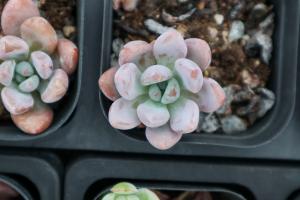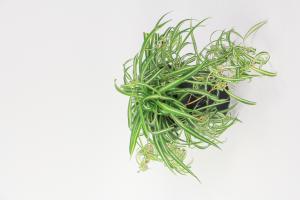Can I Put Potted Plants on My Roof?
Living in a city where space is limited can be challenging for people who have a green thumb. One question that often arises is whether it is possible to have a garden on the roof. The short answer is yes; you can put potted plants on your roof. In this article, we will discuss the benefits and challenges of rooftop gardening and share some tips on how to make it a success.
The Benefits of Rooftop Gardening
Roof gardens offer a variety of benefits, including:
Improved Air Quality: Trees and plants can absorb pollutants and carbon dioxide from the air, providing cleaner and fresher air.
Reduced Urban Heat Island Effect: Plant-covered roofs can help to reduce the amount of heat that is absorbed by buildings and pavement, which in turn can promote cooler air temperatures.
Lower Energy Costs: Well-designed roof gardens can also help to insulate buildings, reducing heating and cooling costs.
Increased Biodiversity: Rooftop gardens provide habitat for pollinators, birds, and other wildlife, increasing biodiversity in urban areas.
Aesthetic Value: A well-designed rooftop garden can also add beauty and value to a property.
Challenges of Rooftop Gardening
While there are many benefits to rooftop gardening, there are also some challenges. These include:
Weight Restrictions: Before creating a rooftop garden, it is important to determine the weight capacity of the roof to ensure that it can support the weight of the soil, plants, and containers.
Wind and Sun Exposure: Roof gardens can be exposed to harsh winds and intense sunlight, which can damage plants. It is important to choose plants that are tolerant of these conditions.
Drainage: Proper drainage is essential for a rooftop garden to prevent water damage to the building. Adequate drainage should be installed, and containers should have drainage holes to allow excess water to escape.
Maintenance: Rooftop gardens require regular maintenance, including watering, fertilizing, pruning, and pest control.
Tips for Successful Rooftop Gardening
If you are thinking about creating a rooftop garden, here are some tips to make it a success:
Choose the right plants: Select plants that are well-suited for rooftop conditions, such as heat and wind tolerance.
Use lightweight potting soil: To reduce the weight of your containers, use a lightweight potting soil.
Provide adequate drainage: Ensure that your containers have drainage holes and that proper drainage systems are in place.
Water regularly: Rooftop gardens can dry out quickly, so it is important to water your plants regularly, especially during hot and dry weather.
Fertilize properly: Use a balanced fertilizer to keep your plants healthy and thriving.
Monitor for pests: Regularly inspect your plants for signs of pests and disease, and take prompt action to control any problems.
Conclusion
Creating a rooftop garden can be a great way to enjoy the benefits of gardening, even if you live in an urban area. While there are some challenges that come with rooftop gardening, with proper planning, plant selection, and maintenance, it is possible to create a beautiful and thriving garden on your roof.

 how many times do yo...
how many times do yo... how many planted tre...
how many planted tre... how many pine trees ...
how many pine trees ... how many pecan trees...
how many pecan trees... how many plants comp...
how many plants comp... how many plants can ...
how many plants can ... how many plants and ...
how many plants and ... how many pepper plan...
how many pepper plan...






























